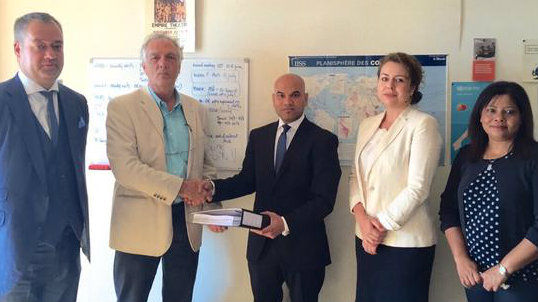Government responds to UN on ex-president’s terrorism trial
The Maldivian government, in a response to the UN working group on arbitrary detention today, contended a terrorism conviction against former president Mohamed Nasheed was not politically motivated and that allegations of lack of due process is factually incorrect.

10 Jul 2015, 14:10
Zaheena Rasheed
The Maldivian government, responding to the UN working group on arbitrary detention today, contended that a terrorism conviction against former president Mohamed Nasheed was not politically motivated and said allegations over lack of due process are factually incorrect.
Nasheed’s family had lodged a petition with the UN in April requesting a judgment declaring the opposition leader’s detention illegal and arbitrary. The government was asked to respond before the first week of July.
“Mr Nasheed has not been a victim of a politicised process. He has been properly charged and faced trial for an extremely serious offence, one that was aimed at interfering with an independent judiciary and circumventing the rule of law. The law cannot be applied selectively,” said Ahmed Shiaan, the ambassador of the Maldives to Belgium.
Nasheed was sentenced to 13 years in jail over the military’s detention of the criminal court chief judge Abdulla Mohamed in January 2012.
Become a member
Get full access to our archive and personalise your experience.
Already a member?
Discussion
No comments yet. Be the first to share your thoughts!
No comments yet. Be the first to join the conversation!
Join the Conversation
Sign in to share your thoughts under an alias and take part in the discussion. Independent journalism thrives on open, respectful debate — your voice matters.




